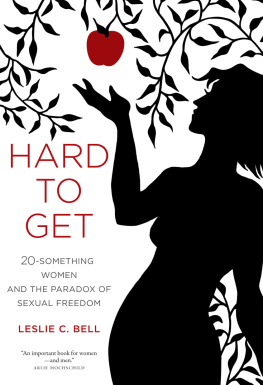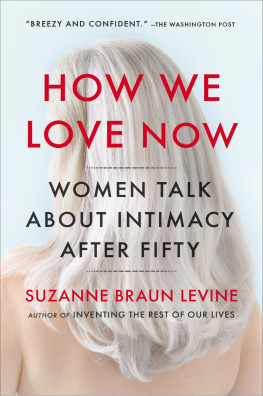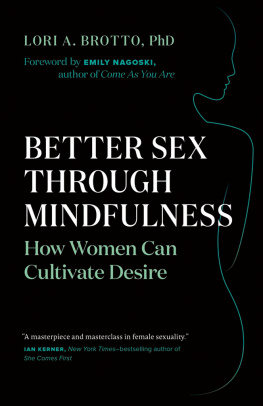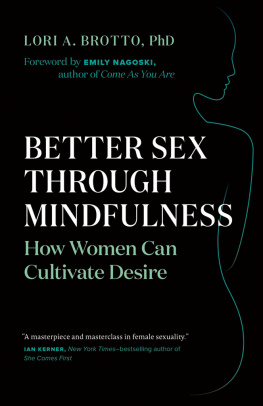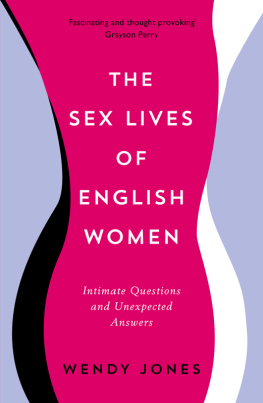
ADVANCE PRAISE FOR LESLIE C. BELLS HARD TO GET
While popular portrayals of women and sex are glossy, voyeuristic, simplified, unemotional, or trite, Hard to Get offers rarely heard detailed stories told with emotional resonance and connection to womens full lives and selves. Bell has made a superb contribution to our understanding about how women navigate sexuality in young adulthood in an era when they no longer must be married, and thus she has enlightened our understanding of womens social, sexual, and psychological lives.
Karin A. Martin, author of Puberty, Sexuality, and the Self: Boys and Girls at Adolescence
Can todays young women be independent and sexual agents while also satisfying their relational needs for intimacy? Bell believes that they can, and insightfully uses womens stories to reveal the inner and outer barriers to having it all.
Paula England, New York University
Bell offers a profoundly original and important argument about whydespite gains in education and employmentyoung women in America continue to be shortchanged in sex and intimacy. And she gives us a new, compelling vision of what it would mean for them to attain true sexual liberation.
Amy Schalet, author of Not under My Roof: Parents, Teens, and the Culture of Sex
Hard to Get is a brilliant intervention into recent debates about womens sexuality. While theoretically sophisticated, the book is so beautifully written that it is hard to put down. Therapists, sexuality scholars, and young women will find this book a powerful tool in making sense of the pleasures and dissatisfactions of young adulthood today.
Elizabeth A. Armstrong, University of Michigan
Female sexuality provides endless fascination; but how do actual young women find happiness in sex and love? Leslie Bell gives us an up-close look at twenty-something women at a cultural moment when they have more freedom than ever before, but their desiressexual and relationalcontinue to confound. Bell navigates this complex terrain with compassion, keen insight, and an eye to social change.
Daphne de Marneffe, author of Maternal Desire: On Children, Love, and the Inner Life
Hard to Get
Hard to Get
Twenty-Something Women and
the Paradox of Sexual Freedom
Leslie C. Bell

UNIVERSITY OF CALIFORNIA PRESS
BerkeleyLos AngelesLondon
University of California Press, one of the most distinguished university presses in the United States, enriches lives around the world by advancing scholarship in the humanities, social sciences, and natural sciences. Its activities are supported by the UC Press Foundation and by philanthropic contributions from individuals and institutions. For more information, visit www.ucpress.edu.
University of California Press
Berkeley and Los Angeles, California
University of California Press, Ltd.
London, England
2013 by Leslie C. Bell
Library of Congress Cataloging-in-Publication Data
Bell, Leslie C., 1970
Hard to get : twenty-something women and the paradox of sexual freedom / Leslie C. Bell.
p. cm.
Includes bibliographical references and index.
ISBN 978-0-520-26149-5 (cloth : alk. paper)
eISBN 9780520954489
1. Young women--Sexual behavior. 2. Sexual freedom. 3. Man-woman relationships. 4. Sexual ethics. 5. Women--Identity. I. Title.
HQ29.B42 2013
176'.4--dc23
2012028369
Manufactured in the United States of America
22 21 20 19 18 17 16 15 14 13
10 9 8 7 6 5 4 3 2 1
In keeping with a commitment to support environmentally responsible and sustainable printing practices, UC Press has printed this book on Natures Natural, a fiber that contains 30% post-consumer waste and meets the minimum requirements of ANSI/NISO z39.481992 ( R 1997) ( Permanence of Paper ).
For Alex
CONTENTS
ACKNOWLEDGMENTS
Acknowledgments first must go to the women I interviewed, who generously gave of their time and, most important, themselves to participate in this project. Their commitment to and interest in their own developmental processes made conducting the interviews a genuine pleasure. I also thank everyone who helped me to locate respondents, and whose interest and confidence in my work convinced young women to participate.
This book has benefited greatly from discussions with or comments by Natalie Boero, Nancy Chodorow, Marianne Cooper, Margaret Fitzsimmons, Laura Frame, Mark Harris, Meg Jay, Miranda Hoffman Jung, Maureen Katz, Ann Kring, Betsy Lerner, Daphne de Marneffe, Katharine Marshall, Dawne Moon, Elena Moser, Malkah Notman, Catherine Nye, C. J. Pascoe, Raka Ray, Toby Rogers, Cornelia St. John, and Pilar Strutin-Belinoffgifted thinkers and clinicians who have seen the relevance of this project to a broader audience. Thanks to Lissa Caldwell, Paula England, and four anonymous reviewers whose careful reading and critiques of the manuscript in earlier drafts improved the books theoretical rigor and historical grounding. I feel tremendously grateful to Nancy Chodorow, whose mentorship, training, advice, intellect, and criticism are unparalleled. She has insisted that I can have it all.
Deep gratitude to my editor, Naomi Schneider, whose confidence and interest in this project have been as important as her keen editorial eye.
For their friendship and faith in me, I thank Mary Curtin, Margaret Fitzsimmons, Kaethe Morris Hoffer, Kirsten Miley Howell, Meg Jay, Maureen Kelly, Nancy Latham, Lea Queen, Marcy Reda, Julie Rice, Toby Rogers, Julie Shapiro, Juliana Van Cleve, Patti Wiley, and Cara Zeisloft. Special thanks to Rachel Sherman, my fellow traveler through the sociology department, whose discussions with me about sexuality, gender, and psychological processes generally greatly benefited this work, and whose support and love as a friend have been invaluable, and to Miranda Hoffman Jung, whose emotional and intellectual engagement in all things personal and professional has enriched my life immensely.
Thanks to my parents, Kathleen Bell and Wayne Bell, who have unfailingly supported me and had confidence in me, encouraging me always to pursue work that feeds and engages me. I am grateful for such a gift of freedom. I deeply appreciate my sister, Alison Bell, whose interest in and conversations with me about twenty-something womens sexuality have greatly benefited this work. Thanks to Kathryn Gronke and Bob Gronke, who have enthusiastically embraced my triumphs both personal and professional.
Profound thanks to Alex for taking so many risks with me.
Thanks to Vivian and Gloria for simply being themselves.
This research was made possible by fellowships from the Sexuality Research Fellowship Program of the Social Science Research Council, funded by the Ford Foundation; the U.C. Berkeley sociology department; the American Psychoanalytic Association; the Stoller Foundation; and the Woodrow Wilson Womens Studies National Fellowship Foundation. I am grateful to all of these funding sources.
CHAPTER ONE
The Paradox of Sexual Freedom
Excited yet embarrassed, Claudia, a twenty-eight-year-old postdoctoral researcher, told me about a one-night stand shed had the night before our interview. I listened as she described the encounter: the fun of flirting with the man at a concert, the excitement and nervousness when it was still unclear what would happen, and the pleasure of being touched by someone she found so attractive. But I noticed that her pleasure gave way to worry that her strong sexual desires might get her into trouble. I wish I werent so horny, so I didnt need to go out and get it so much. I wish I could take a pill to kill my desire, she confided. Claudia felt some shame about her sexual desires and feared others might label her a ho for acting on them. She imagined that her Mexican Catholic family would be horrified if they knew about the number of sexual partners shed had, that they would be devastated and disappointed that their daughter had not become the woman they raised her to be: a good girl who would marry her first boyfriend. feared that men might find them overwhelming. Claudia also worried that being in a relationship would mean a loss of her identity, as she had witnessed her mother sacrifice her own dreams and adventurous spirit to be a wife and parent. Consequently, Claudia had not settled down, and she felt baffled at how difficult it had been to develop successful relationships with men. She had doggedly pursued her career goals as an academic and felt accomplished in that arena, but wondered why she hadnt had as much success in relationships.
Next page
